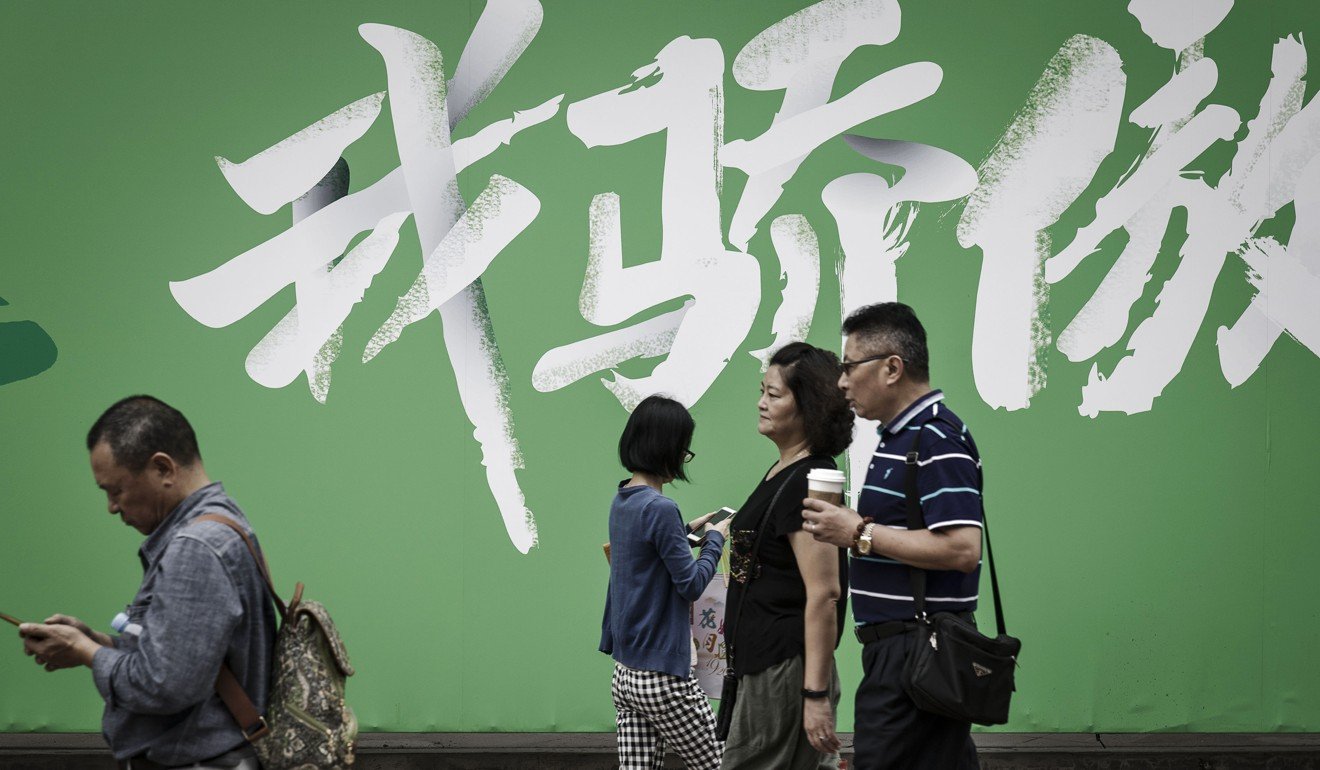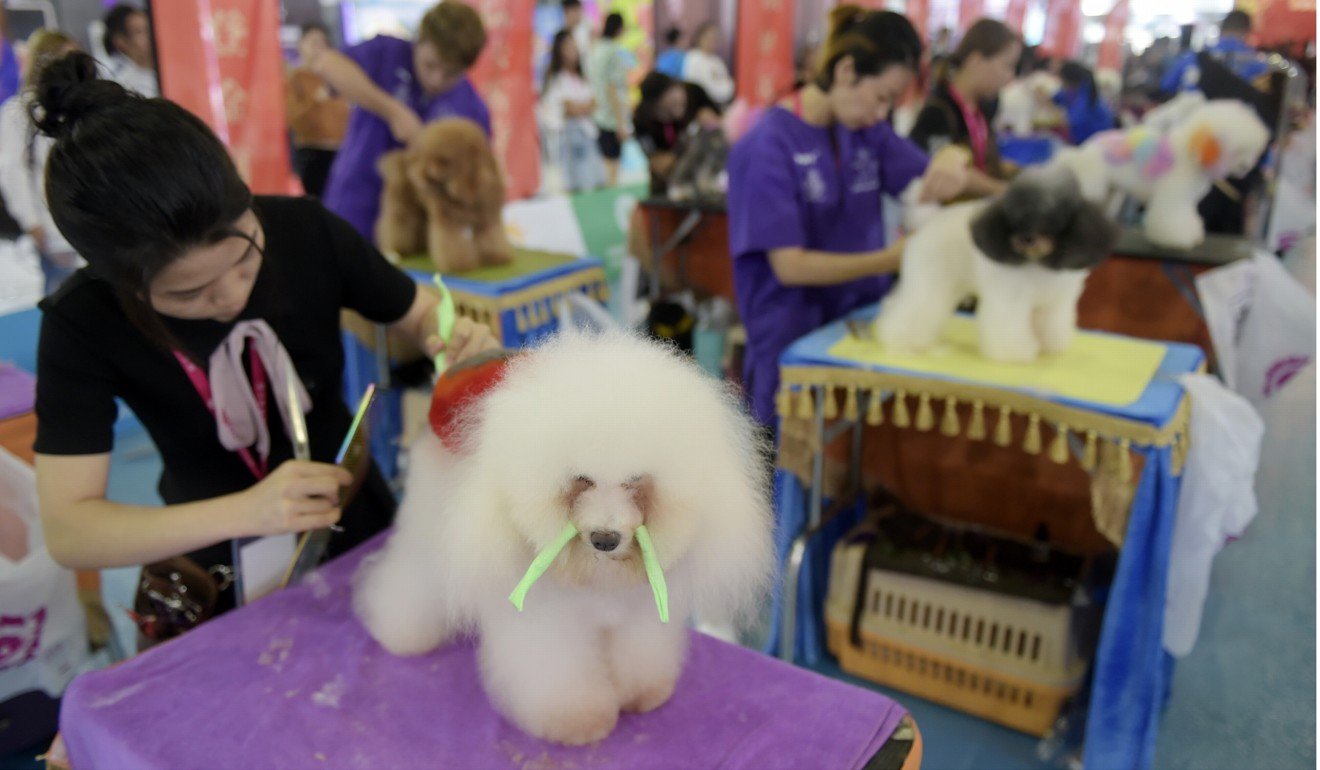
What story will China’s 19th party congress tell?
Song Xiaozhuang says whatever the Western media says, it is the party’s strong leadership that has been the cornerstone in transforming a poor developing country into the political and economic giant it is today
This kind of political arrangement may not be popular in the West, and the Western media has tended to criticise that which is different, seeing it as politically incorrect, inferior, corrupt, lacking checks and balances, and so on. But, in light of the recent problems in Western democracies, particularly when contrasted with Chinese accomplishments since 1979, there have been fewer negative comments of late. Chinese systems are not necessarily weak, let alone wicked; the facts about China say just the opposite.
China’s gross domestic product ranked 10th in the world in 1990; No 7 in 1995, surpassing Canada, Brazil and Spain; No 6 in 2000, exceeding Italy; No 3 in 2009, overtaking France, Britain and Germany; and No 2 in 2010, ahead of Japan. Now China makes a 30 per cent contribution to global GDP growth. Without strong leadership from its ruling party, the Communist Party, it is highly unlikely that China would be able to achieve such economic miracles, one after another.
In terms of income per capita, similar results can be verified. Working with such a huge population in so difficult a situation, China’s achievement will never be surpassed by any other civilisation in the future.
China’s road or the Western way: whose economic development model will prevail?
Chinese development appears to be holistic, when compared with certain countries with wide wealth disparities. In China, distribution of social wealth is proportional to economic development. China believes in the market, but if the market fails to do the job, the government may get involved.
At the start of the country’s reform and opening up in 1978, there were over 250 million people living in poverty; that number had fallen to 95 million by 2000, 29 million by 2010, and we expect poverty to be eradicated by 2020, 10 years earlier than the United Nations goal.
Why Xi Jinping cares so much about ending poverty in China: the political significance behind the campaign

As for environmental and resource protection, China played a key role in the conclusion of the Paris climate agreement in 2015. Internally, air and other pollution in many Chinese cities has been substantially reduced. Today, China intends to adopt a prevention-first policy in fighting pollution.
If the political system in China is really as bad as some Western media has claimed, how could China have achieved so much? In fact, Chinese achievements may at least be partly attributed to its different political system.
Green policies in focus as China’s rise to an ecological civilisation continues apace
If this is correct, everyone should be interested in learning from Chinese development and growth. In particular, they should be keen to find out from the 19th party congress what the party has prescribed for its people.
Perhaps the 19th party congress will tell the story of a Chinese people who are confident in their ways
The integration of developed and developing areas through the building of a railway, whether or not it is a high-speed railway, holds the key for developing economic belts. Better infrastructure and transport links will facilitate flows of people, money, and goods and services, and the rise in economic activity will spur urbanisation.
Even its critics must agree that China has made great progress in many of its scientific, technological and engineering programmes, with significant breakthroughs in aerospace, aviation, high-speed railways and communications systems.
China has also proved itself to be up to the task of meeting challenges. Facing a global financial crisis in 2007, for example, China achieved a “soft landing” with high growth rates and its economy has remained stable.
In a rapidly growing economy, the middle-income trap may be difficult to escape. Yet, much depends on the economy in question.

China’s new middle class swaps karaoke for cruise holidays and thrilling rides, survey shows
Since 1978, China has suffered from occasional rumours of falling into a middle-income trap and of even approaching economic collapse. But, given that the country has increased its income per capita 16 times within 33 years, using 1978 data as a base, such rumours are clearly false.
China is not yet ranked as a high-income nation, but it has escaped the middle-income trap by upgrading its manufacturing industries and increasing the service sector’s share of GDP. China will share its valuable experiences with other economies in a similar situation.
For more stable development in the future, China is reducing its high-speed growth through a variety of measures: deleveraging the economy to ensure growth is less dependent on credit; driving innovation and raising efficiency and productivity; increasing the proportion of services in the economy; and, upgrading manufacturing industries. Many such measures would have useful lessons for similar economies.
Watch: The Communist Party congress explained
Xi Jinping isn’t just reforming China, he’s creating an alternative to the West
China has set two goals for the achievement of the “Chinese dream”, recalling the “American dream”. One goal is to double the country’s 2011 per capita income by 2021, to establish a moderately prosperous society. The second goal is for China to become, by 2049, a modern socialist country that is prosperous, strong, democratic, culturally advanced and harmonious.
While the former goal is short-term and realistic, the latter is idealistic and will be met in the longer term; the former is the dream of a rapidly rising power, the latter is the dream of an ancient civilisation for renaissance and rejuvenation.
Both the Chinese and American dreams inspire their people and give them the spiritual strength to build a strong nation, establish a harmonious society, and pursue a good and happy life. Perhaps the 19th party congress will tell the story of a Chinese people who are confident in their ways, their system, their theory and their culture, as they try to achieve their dream under the leadership of the party.
Song Xiaozhuang is a professor at Shenzhen University’s Centre for Basic Laws of Hong Kong and Macau
